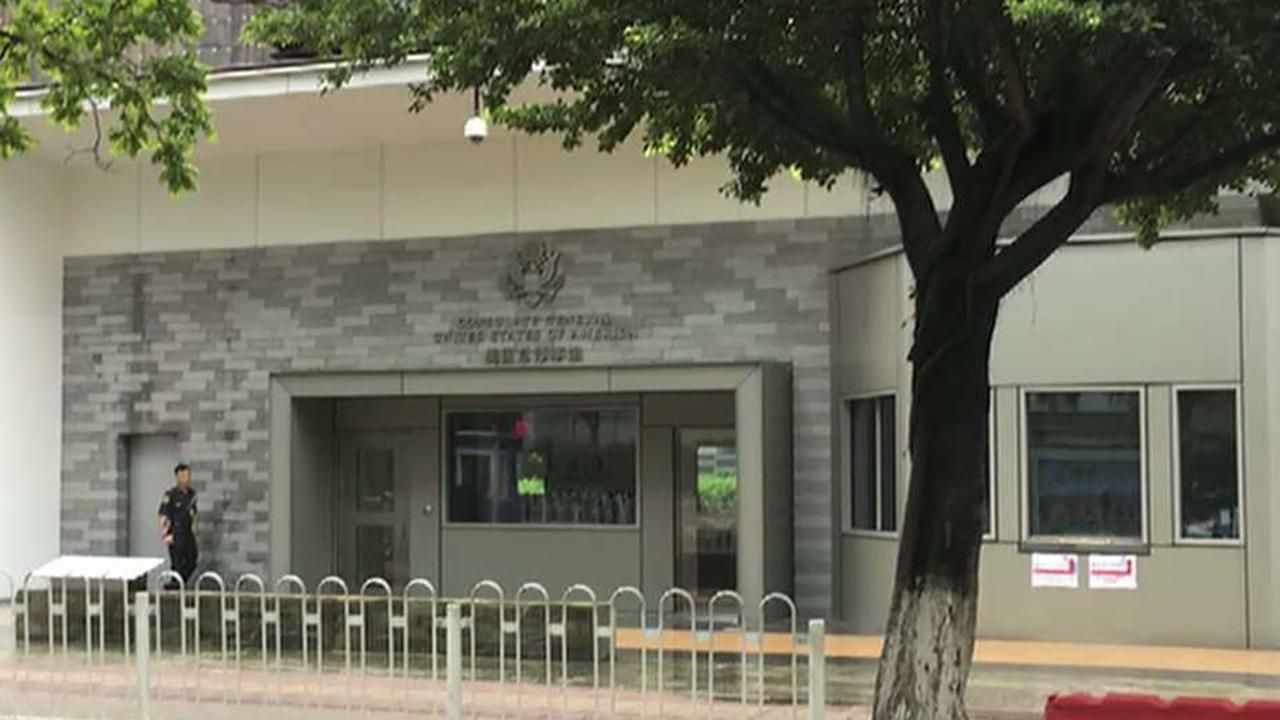[ad_1]
U.S. diplomats in China are facing a case of déjà vu as several Americans who work at the consulate in the country are being plagued by a mysterious illness with symptoms that are eerily similar to those that officials first reported in Cuba back in 2016.
The State Department has already evacuated a handful of government employees. And Secretary of State Mike Pompeo announced on Tuesday that he has established a task force to investigate the “unexplained health incidents” overseas.
“At this time, 24 U.S. government personnel and family members who served in Cuba have been medically-confirmed as having symptoms and clinical findings similar to those noted following concussion or minor traumatic brain injury,” Pompeo said in an online statement.
On May 16, medical officials confirmed an American government employee serving in China had similar symptoms, though U.S. officials can not expand on the injuries nor can they definitively establish a connection between the health scare in China versus Cuba. The Guangzhou consulate reported last month that a worker reported experiencing “subtle and vague, but abnormal, sensations of sound and pressure.”
The New York Times identified the latest American to evacuate the area as security engineering officer Mark A. Lenzi. Lenzi suffered in recent months from what he called “neurological symptoms.”
The U.S. government said the incidents in Cuba were “specific attacks” on American workers. While the U.S. has yet to publicly declare a cause or reveal who’s responsible, many believe the sound-related health problems are a result of sonic weapons.
Here’s what we know so far about the mystery illness that targets the brain.
What are the symptoms?
Symptoms have included dizziness, sleep abnormalities, headaches and an inability to concentrate.
Most of the victims in Cuba experienced “cognitive, balance, hearing, oculomotor dysfunction, or all 4, as well as sleep impairment and headaches,” according to University of Pennsylvania Center for Brain Injury and Repair researchers, who studied 21 of the 24 US government personnel living in Havana at the time of the “attacks” and published their findings in the Journal of the American Medical Association in March.
Many also said they heard loud “buzzing,” “piercing squeals” or “humming” on top of experiencing a variety of sensory-related issues such as intense pressure or vibrations similar to something you’d feel while “inside a moving car with the windows partially rolled down,” the study explains.
How long does the illness last?
The majority of those studied said they were still experiencing side effects after at least three months. More than 80 percent said they still had cognitive issues upon returning from Cuba.
“They don’t have as much cognitive reserve,” Randel Swanson, a brain rehabilitation specialist at the University of Pennsylvania Center for Brain Injury and Repair who co-authored the study, said.
How can high-freqency noise impact hearing?
If you’re exposed to high-frequency sounds for an extended period of time, then you may damage tissues in your inner ear.
“Sounds can be harmful when they are too loud, even for a brief time, or when they are both loud and long-lasting,” the National Institute on Deafness and Other Communication Disorders (NIDCD) explains on its website. “These sounds can damage sensitive structures in the inner ear and cause noise-induced hearing loss.”
The loud noise can “damage or kill the delicate sensory cells called cilia, without any sign until you start to have permanent hearing loss,” Dr. Darius Kohan, director of otology and neurotology at Manhattan Eye, Ear, and Throat Hospital, told medical site Healthline in August 2017 following the incidents in Cuba.
“The hair cells — the sensory cells — in the cochlea almost never come back [if they die],” he added.
However, as NIDCD points out, noice-induced hearing loss can be temporary or permanent.
Can sound cause brain damage?
“Sound in the audible range … is not known to cause persistent injury to the central nervous system,” authors of the study wrote, according to The Washington Post.
MRIs of the 21 Havana workers didn’t detect any brain disorders.
“Brain imaging showed nonspecific white matter changes in some individuals, but was otherwise unrevealing,” the study revealed.
The Associated Press contributed to this report.
[ad_2]
Source link

